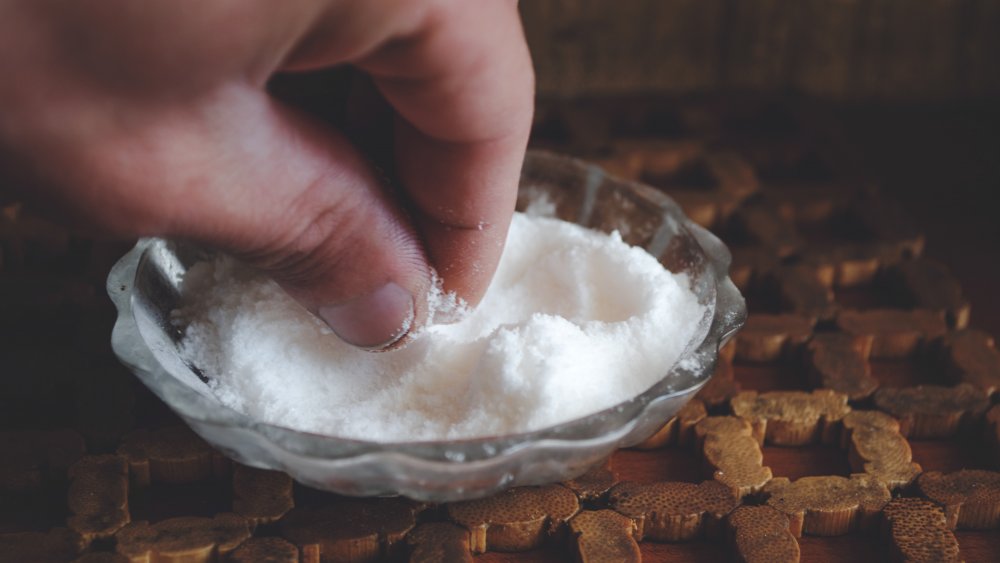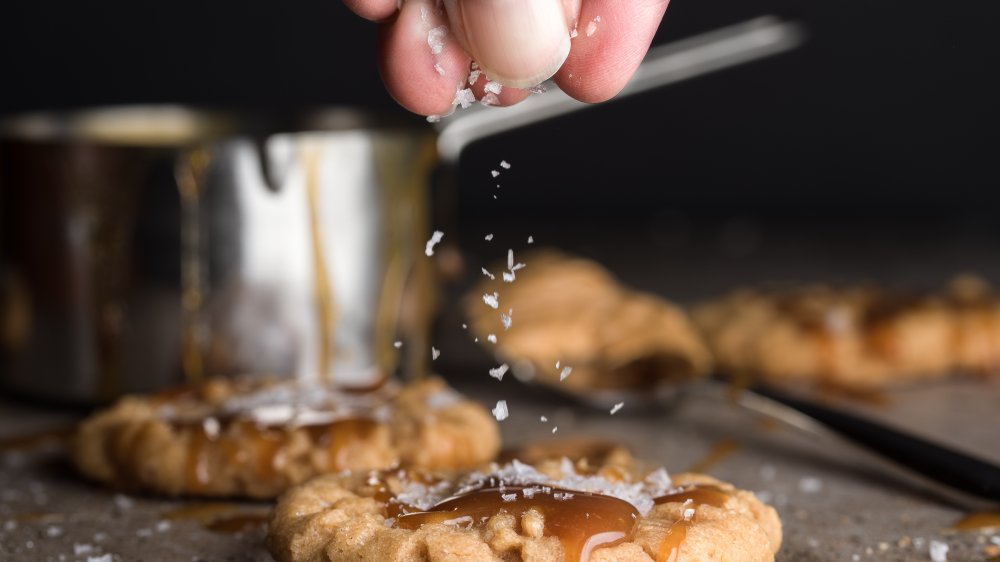How Much Is A Pinch Of Salt?
Unless you've been cooking for years and know exactly what you're doing when it comes to a recipe, it's probably not the best idea to wing it when it comes to measurements. Adding too much or too little of even the simplest ingredient can really be the difference between delicious and inedible. Luckily, we have measuring cups, pitchers, spoons, and other kitchen tools to get those ingredients just right — except recipes aren't always that straightforward.
What about when that recipe for the perfect chocolate chip cookies calls for a "pinch" of salt? Last we checked there wasn't a measuring spoon labeled "pinch" anywhere to be found.
What's the difference between a dash and a pinch of salt?
If you're thinking that a pinch of salt surely can't be as simple as the salt that you can pinch between your forefinger and thumb, we have good news — that's exactly what it is! Now assuming you don't have Andre the Giant-sized gorilla mitts, a pinch of salt is generally going to be 1/16 or 1/8 teaspoon, depending on the size of your fingers (via My Recipes). Of course, there's also the "three-fingered pinch" approach which is great if you're needing a little more than a regular pinch but don't want to whip out the measuring spoons. It tends to equate to between 1/4 teaspoon and 1/8 teaspoon. Again, your pinch size may vary (via The Kitchn).
Because cooking isn't always simple there's also the equally confusing measurements of "dash" and "smidgen." Now before you get completely overwhelmed and relegate yourself to a lifetime of cooking only microwave dinners, you should know that these vague measurements aren't too tricky. A smidgen of something is generally 1/32 of a teaspoon according to Lifehacker, or half a pinch. As for a dash, well, Lifehacker says this refers to a liquid measurement equal 1/8 of a teaspoon. Cooking Light, however, says that when a recipe calls for a dash of salt this is equal to 1/16 of a teaspoon — half of Lifehacker's definition. Confused yet? Maybe meeting in the middle is your best bet for a dash of salt.
It's pretty common for different recipes for the same dish to call for different measurements, and depending on what spices you're using, you may find that a pinch of table salt provides a lot less flavor than a pinch of sea salt. You can always add more spice and seasoning to a dish, but it's difficult to take it away. So perhaps the best solution is to be conservative with your spice and taste frequently.

